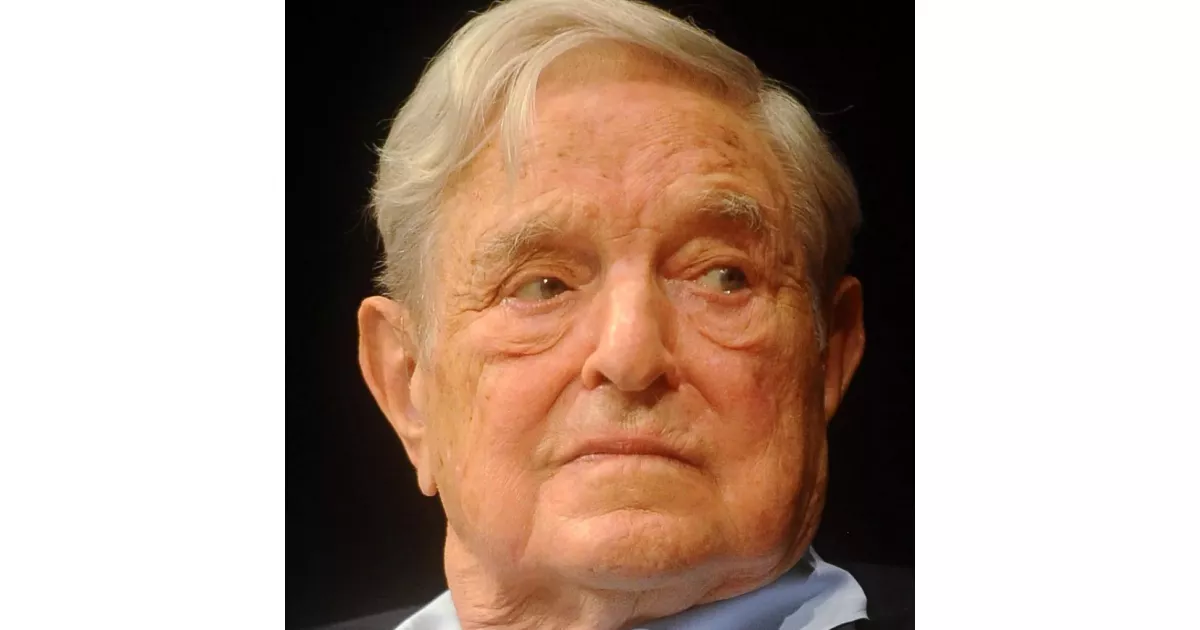George Soros is a Hungarian-American investor and philanthropist with a net worth of $7.2 billion as of May 2025. He is renowned for his significant philanthropic contributions, having donated over $32 billion to the Open Society Foundations, with $15 billion already distributed. These donations represent 64% of his original fortune. In 2020, Forbes recognized Soros as the "most generous giver" based on the percentage of his net worth donated.
January 3, 1934: Annaliese Witschak's birth
On January 3, 1934, Annaliese Witschak, who would later become George Soros's first wife, was born.
1960: Marriage to Annaliese Witschak
In 1960, George Soros married Annaliese Witschak, an ethnic German immigrant and war orphan, who was well-regarded by his parents.
1973: Launch of Quantum Endowment Fund
In 1973, George Soros launched his Quantum Endowment Fund, which would later generate almost $42 billion in gains, leading to him being ranked number 1 by LCH Investments in January 2014.
1979: Support for Dissidents in Eastern Europe
From 1979, George Soros financially supported dissidents including Poland's Solidarity movement, Charter 77 in Czechoslovakia and Andrei Sakharov in the Soviet Union, as an advocate of 'open societies'.
1980: Honorary Degree from Oxford
In 1980, George Soros received an honorary doctoral degree from the University of Oxford.
1983: Divorce from Annaliese Witschak
In 1983, George Soros divorced his first wife, Annaliese Witschak, after being married for 23 years and having three children together.
1983: Marriage to Susan Weber
In 1983, George Soros married Susan Weber. This was his second marriage.
1984: Founding of the First Open Society Institute
In 1984, George Soros founded his first Open Society Institute in Hungary with a budget of $3 million.
1984: Soros played a role in the transition from communism to democracy in Hungary
In 1984, George Soros played a role in the peaceful transition from communism to democracy in Hungary and provided a substantial endowment to Central European University in Budapest.
1987: Prediction of disaster in "The Alchemy of Finance"
In his book "The Alchemy of Finance" from 1987, George Soros predicted disaster. In later years, he mentions it was the first time he cried wolf.
1988: Advice to the "No" Campaign in Chile
In 1988, George Soros advised the "No" campaign in the Chilean plebiscite, providing studies and data that proved crucial for the campaign's strategy and victory. His support was instrumental in preparing the successful television program that contributed to the plebiscite's outcome.
1988: Investment in French Companies
In 1988, George Soros was contacted to participate in a group investment in Société Générale, but opted to personally accumulate shares in Société Générale, Suez, Paribas, and Compagnie Générale d'Électricité.
1989: Insider Trading Investigation
In 1989, the Commission des Opérations de Bourse (COB) investigated George Soros's transaction in Société Générale for insider trading. Initial investigations found him innocent.
1991: Honorary Degree from Yale University
In 1991, George Soros received a Doctor of Humane Letters, an honorary degree, from Yale University.
1994: Offer to help mother commit suicide and Endorsement of Oregon Death with Dignity Act
In 1994, George Soros delivered a speech where he mentioned offering to help his mother, a member of the Hemlock Society, commit suicide. In the same speech, he endorsed the Oregon Death with Dignity Act and helped fund its advertising campaign.
1995: Honorary Degree from the University of Bologna
In 1995, George Soros received an honorary laurea degree in economics from the University of Bologna.
1995: Financial Backing of D.C. United
In 1995, George Soros was a financial backer of Washington Soccer L.P., the group that owned the operating rights to Major League Soccer club D.C. United when the league was founded.
1997: Closure of Belarus Foundation
In 1997, George Soros closed his foundation in Belarus after it was fined $3 million by the government for "tax and currency violations". Soros called the fines part of a campaign to "destroy independent society".
1997: Shorting of Thai Baht and Malaysian Ringgit
In 1997, Soros Fund Management shorted the Thai baht and the Malaysian ringgit due to an unsustainable discrepancy between the trade and capital accounts. Later, Prime Minister Mahathir of Malaysia accused Soros of causing the financial crisis, which Soros denied, stating they were buyers of the currency during the crisis to profit from earlier speculation.
1998: Order of the Cross of Terra Mariana
In 1998, George Soros was awarded the Order of the Cross of Terra Mariana, First Class, by the President of the Republic of Estonia, Lennart Meri.
1998: Soros's Advice to Son on Jewish Identity and Israel
In 1998, after his son Alexander's bar mitzvah, George Soros advised him to consider immigrating to Israel if he was serious about being Jewish.
1998: Statement on Religious Beliefs
In a 1998 interview with CBS News, George Soros stated that he was not religious and does not believe in God.
1998: Prediction of disaster in "The Crisis of Global Capitalism"
In his book "The Crisis of Global Capitalism" from 1998, George Soros predicted disaster. In later years, he mentions it was the second time he cried wolf.
1999: Paul Krugman's Criticism
In 1999, economist Paul Krugman criticized Soros's effect on financial markets.
2000: Improving Ricardo Lagos' Image
In 2000, George Soros worked to enhance the image of Ricardo Lagos, a presidential candidate, among business circles, likely aiming to garner support for Lagos's election.
2000: Loss of Operating Rights to D.C. United
In 2000, Washington Soccer L.P., the group financially backed by George Soros, lost the operating rights to Major League Soccer club D.C. United.
September 2002: OSI donates to Defense Committee of Lynne Stewart
In September 2002, the Open Society Institute gave $20,000 to the Defense Committee of Lynne Stewart. An OSI spokeswoman claimed there was a right-to-counsel issue worthy of their support.
November 11, 2003: Focus on Removing President Bush from Office
On November 11, 2003, George Soros stated that removing President George W. Bush from office was his "central focus" and "a matter of life and death." He expressed willingness to sacrifice his entire fortune to defeat Bush. Soros then donated $3 million to the Center for American Progress, $2.5 million to MoveOn.org, and $20 million to America Coming Together to support Democrats in the 2004 election.
2003: Soros's Philanthropic Funding
As of 2003, George Soros had given away a total of $4 billion toward efforts to promote non-violent democratization in the post-communist states, primarily through the Open Society Foundations.
2003: Political Donations Begin
During the 2003-2004 election cycle, George Soros began making significant political donations to various 527 Groups.
2003: Activity of The Project on Death in America
From 1994 to 2003, The Project on Death in America was active as one of the Open Society Institute's projects, which sought to "understand and transform the culture and experience of dying and bereavement".
2003: Publication of "The Bubble of American Supremacy"
In 2003, George Soros's book, "The Bubble of American Supremacy", was published, offering a critique of the Bush administration's "War on Terror" and advocating against Bush's re-election. Soros linked political events to self-reinforcing reflexive processes similar to those in stock market bubbles.
2003: Remarks on Anti-Semitism at Jewish Funders Network Conference
In 2003, during a conference of the Jewish Funders Network, George Soros suggested that policies of the Bush and Sharon administrations, along with unintended consequences of his own actions, were contributing to a new European anti-Semitism. His comments sparked controversy and criticism, with some accusing him of blaming the victim.
2003: Volcker's foreword in Soros's book
In 2003, former Federal Reserve chairman Paul Volcker wrote in the foreword of George Soros's book The Alchemy of Finance:
September 28, 2004: Speech and Campaign Kickoff
On September 28, 2004, George Soros dedicated additional funds to the campaign against President Bush and initiated a multistate tour. He delivered a speech titled "Why We Must Not Re-elect President Bush" at the National Press Club in Washington, D.C. His site became highly trafficked after Dick Cheney mistakenly referred to FactCheck.org as 'factcheck.com'.
2004: Donations to Defeat George W. Bush
Until the 2004 presidential election, George Soros had not been a large donor to U.S. political campaigns. In 2004, Soros donated $23,581,000 to 527 Groups aimed at defeating President George W. Bush.
2005: Divorce from Susan Weber
In 2005, George Soros divorced Susan Weber, his second wife, after being married for 22 years and having two children together.
2005: Attempted Purchase of Washington Nationals
In 2005, George Soros was a minority partner in a group that attempted to purchase the Washington Nationals, a Major League baseball team, but faced potential antitrust exemption revocation concerns.
June 14, 2006: French Supreme Court Conviction
On June 14, 2006, the French Supreme Court confirmed George Soros's conviction for insider trading related to a 1988 transaction in Société Générale, reducing the penalty to €940,000.
September 2006: Soros pledges $50 million to Millennium Promise
In September 2006, George Soros pledged $50 million to the Millennium Promise to provide educational, agricultural, and medical aid to villages in Africa enduring poverty.
December 2006: Appeal to the European Court of Human Rights
In December 2006, George Soros appealed to the European Court of Human Rights, arguing that the 14-year delay in bringing the insider trading case to trial precluded a fair hearing.
2006: Soros discusses US role in world order
In 2006, George Soros stated that the United States, by declaring a 'war on terror' after September 11, had set the wrong agenda for the world and is the main obstacle to a stable and just world order.
2006: Criticism in Turkey
In a 2006 interview, Ercis Kurtulus, head of the Social Transparency Movement Association (TSHD) in Turkey, claimed that "Soros carried out his will in Ukraine and Georgia by using these NGOs" and suggested banning NGOs from taking money from foreigners.
2007: Soros donates to projects
In 2007, Time magazine cited two specific projects - $100 million toward Internet infrastructure for regional Russian universities, and $50 million for the Millennium Promise to eradicate extreme poverty in Africa - noting that George Soros had given $742 million to projects in the U.S., and given away a total of more than $7 billion.
May 2008: Publication of "The New Paradigm for Financial Markets"
In May 2008, George Soros's book, "The New Paradigm for Financial Markets", was published. In it, Soros described a "superbubble" that had developed over the previous 25 years and was on the verge of collapse.
2008: Reflexivity in Housing Markets
Around 2008, an example of reflexivity in modern financial markets was that of the debt and equity of housing markets. Lenders made more money available to more people in the 1990s to buy houses. More people bought houses with this larger amount of money, thus increasing the prices of these houses.
2008: Attention to Reflexivity Theory After Financial Crisis
George Soros's theories on reflexivity, which were initially dismissed by economists, gained more attention following the 2008 financial crisis, eventually becoming the central theme of an issue of the Journal of Economic Methodology.
2008: Funding Drug Policy Reform Efforts
In 2008, George Soros donated $400,000 to support the Massachusetts Sensible Marijuana Policy Initiative, which successfully decriminalized possession of small amounts of marijuana. He also funded similar initiatives in other states and supported drug decriminalization groups like the Lindesmith Center and Drug Policy Foundation. Additionally, Soros donated $1.4 million to support California's Proposition 5, a ballot measure aimed at expanding drug rehabilitation programs, which ultimately failed.
2008: Meeting Tamiko Bolton
In 2008, George Soros met Tamiko Bolton, whom he would later marry.
2008: Induction into Hedge Fund Manager Hall of Fame
In 2008, George Soros was inducted into Institutional Investors Alpha's Hedge Fund Manager Hall of Fame along with other prominent figures in the industry.
2008: Association with AS Roma
In 2008, George Soros's name was associated with AS Roma, an Italian association football team, but the club was not sold.
February 2009: Assessment of the World Financial System
In February 2009, George Soros stated that the world financial system had effectively disintegrated and was on life support with no imminent resolution to the crisis in sight.
June 2009: Donation to Central and Eastern Europe
In June 2009, George Soros donated $100 million to Central Europe and Eastern Europe to counter the impact of the Great Recession on the poor, voluntary groups, and non-government organizations.
August 2009: Donation to New York State
In August 2009, George Soros donated $35 million to the state of New York, earmarked for underprivileged children, providing $200 per child aged 3 through 17 with benefit cards. Additionally, New York added $140 million to the fund from federal recovery act money.
October 2009: Remarks on Marijuana and Funding Drug Policy Alliance
In October 2009, George Soros stated in an interview his opinion that marijuana is less addictive but not suitable for children. He also revealed that he has not used marijuana for years. Additionally, he has been a major financial backer of the Drug Policy Alliance, contributing around $5 million annually through one of his foundations.
October 2009: Founding of the Institute for New Economic Thinking
In October 2009, in reaction to the Great Recession, George Soros founded the Institute for New Economic Thinking, a think tank composed of international economic, business, and financial experts, mandated to investigate new approaches to organizing the international economic and financial system.
2009: Awarded Bernardo O'Higgins Order of Merit
In 2009, Michelle Bachelet awarded George Soros the Bernardo O'Higgins Order of Merit in recognition of his "unwavering commitment to democracy and open societies."
October 2010: Donation to Support Proposition 19 in California
In October 2010, George Soros donated $1 million to support California's Proposition 19, which aimed to legalize marijuana in the state.
2010: Soros expresses concern about China's power
In 2010, George Soros expressed concern about the growth of Chinese economic and political power and compared China's government to the US government.
2010: Reuters reports and then retracts Soros's alleged connection to Wall Street Protests
In 2010, a Reuters story stated there were 'indirect financial links' between George Soros and Adbusters which acted as a catalyst for Wall Street Protests. Later Reuters retracted it's story saying that Soros's spokesman and Adbusters' co-founder Kalle Lasn both said that Adbusters never received any contributions from Soros.
May 2011: Soros donates to Bard College
In May 2011, George Soros donated $60 million to Bard College, establishing the Bard College Center for Civic Engagement.
October 2011: Soros calls for stronger EU economic government
In October 2011, George Soros drafted an open letter with other European leaders calling for a stronger economic government for Europe using federal means, warning against nationalistic solutions to the Great Recession.
October 2011: Denial of Funding Wall Street Protests
In October 2011, a Reuters story clarified that George Soros was not a funder of the Wall Street Protests, correcting an earlier report that suggested indirect financial links existed as late as 2010 between Soros and Adbusters, the catalyst for the protests.
October 2011: European Court Rejects Appeal
In October 2011, the European Court of Human Rights rejected George Soros's appeal in a 4–3 decision, stating that he was aware of the risk of breaking insider trading laws.
August 21, 2012: Acquisition of Manchester United Stake
On August 21, 2012, BBC reported SEC filings showing George Soros acquired roughly a 2% stake in English football club Manchester United through the purchase of 3 million of the club's Class-A shares.
September 27, 2012: Donation to Priorities USA Action
On September 27, 2012, George Soros announced a $1 million donation to Priorities USA Action, a super PAC supporting President Barack Obama's reelection.
2012: Labeling as Enemy of the State in Hungary
Since 2012, the Hungarian Fidesz government has labelled George Soros as an enemy of the state.
June 15, 2013: Death of Paul Soros
On June 15, 2013, Paul Soros, George Soros' older brother, who was a private investor and philanthropist, passed away.
September 21, 2013: Marriage to Tamiko Bolton
On September 21, 2013, George Soros married Tamiko Bolton.
October 2013: Support for Ready for Hillary
In October 2013, George Soros donated $25,000 to Ready for Hillary, becoming a co-chairman of the super PAC's national finance committee.
January 2014: Ranked Number 1 by LCH Investments
In January 2014, George Soros was ranked number 1 in LCH Investments' list of top 20 managers, having posted gains of almost $42 billion since the launch of his Quantum Endowment Fund in 1973.
January 2015: Soros calls for bailout money for Ukraine
In January 2015, George Soros called on the European Union to give $50 billion of bailout money to Ukraine.
June 2015: Donation to Priorities USA Action Supporting Hillary Clinton
In June 2015, George Soros donated $1 million to the Super PAC Priorities USA Action, which supported Hillary Clinton in the 2016 presidential race.
July 2015: Soros states Putin's annexation of Crimea challenged world order
In July 2015, George Soros stated that Putin's annexation of Crimea was a challenge to the prevailing world order and hypothesized that Putin wants to destabilize Ukraine.
July 2015: Soros discusses US-China relations
In July 2015, George Soros stated that a strategic partnership between the US and China could prevent the evolution of two power blocks that may be drawn into military conflict.
October 2015: Soros criticizes Orbán's handling of migrant crisis
In October 2015, George Soros criticized Hungarian Prime Minister Viktor Orbán's handling of the 2015 European migrant crisis, contrasting Orbán's focus on protecting national borders with his own plan to protect refugees.
November 2015: Russia bans Soros's charities
In November 2015, Russia banned the Open Society Foundations (OSF) and the Open Society Institute (OSI), two pro-democracy charities founded by George Soros, stating they posed a threat to the foundations of the constitutional system of the Russian Federation and the security of the state.
December 2015: Additional Donation to Priorities USA Action
In December 2015, George Soros donated $6 million to the Super PAC Priorities USA Action, which supported Hillary Clinton in the 2016 presidential race.
December 2015: Russian intergovernmental letter states Soros's charities were forming a perverted perception of history
In December 2015, a Russian intergovernmental letter stated that George Soros's charities were 'forming a perverted perception of history and making ideological directives, alien to Russian ideology, popular'.
2015: Disagreement over European Migrant Crisis
In 2015, The Hungarian government disagreed with George Soros's involvement in the 2015 European migrant crisis. Soros called the government "a mafia state".
2015: Conspiracy Theories and Demonization
In 2015, due to his Jewish identity, wealth, and philanthropy, George Soros was the target of conspiracy theories, particularly related to the European migrant crisis. The Hungarian government launched a poster campaign demonizing him, with some critics viewing him as leading an international cabal.
January 2016: Books related to Soros' program withdrawn in Russia
In January 2016, 53 books related to George Soros's "Renewal of Humanitarian Education" program were withdrawn and seized in Russia. A Russian intergovernmental letter stated that Soros's charities were forming a perverted perception of history.
January 2016: Prediction of Financial Crisis at Sri Lanka Economic Forum
In January 2016, at an economic forum in Sri Lanka, George Soros predicted a financial crisis similar to the 2008 financial crisis, based on the condition of the global currency, stock, and commodity markets, as well as the weakening Chinese yuan.
August 2016: Further Donation to Priorities USA Action
In August 2016, George Soros donated $2.5 million to the Super PAC Priorities USA Action, which supported Hillary Clinton in the 2016 presidential race.
2016: Views on Israel and Funding of Critical NGOs
In 2016, George Soros stated that while he doesn't deny Jews the right to a national existence, he doesn't want to be part of it. Leaked emails revealed his Open Society Foundation's objective to challenge Israel's policies and support NGOs critical of Israel, including those promoting the Boycott, Divestment and Sanctions movement.
2016: Support for Criminal Justice Reform Proponents
Since 2016, George Soros has donated sums exceeding $1 million to the campaigns of progressive criminal justice reform proponents through the Safety and Justice PAC in local district attorney elections.
January 2017: Launch of "Stop Operation Soros" in Macedonia
In January 2017, the "Stop Operation Soros" (SOS) initiative was launched in Macedonia, aiming to present information about how George Soros operates worldwide and calling for the "de-Soros-ization" of Macedonia.
March 2017: Inquiry into Grants to Soros-Funded Groups
In March 2017, six US senators requested that the Secretary of State investigate grants given by the State Department and USAID to groups funded by George Soros. Judicial Watch also filed a lawsuit regarding $5 million transferred to Soros's Open Society branch in Macedonia.
July 2017: Elected Honorary Fellow of the British Academy
In July 2017, George Soros was elected an Honorary Fellow of the British Academy (HonFBA), the United Kingdom's national academy for the humanities and social sciences.
July 2017: Hungarian Billboard Campaign Vilifying Soros
In July 2017, a billboard campaign in Hungary, backed by Prime Minister Viktor Orbán, vilified George Soros as an enemy of the state with the slogan "Let's not allow Soros to have the last laugh". The campaign was widely criticized as anti-Semitic, evoking historical parallels to Nazi propaganda.
October 17, 2017: Soros transfers $18 billion to Open Society Foundations
On October 17, 2017, George Soros transferred $18 billion to the Open Society Foundations.
2017: Study on Grant Program Impact
A 2017 study found that a grant program by George Soros awarded funding to over 28,000 scientists in the former Soviet republics, which more than doubled publications, significantly induced scientists to remain in the science sector, and had long-lasting beneficial impacts.
2017: $10-Million Lawsuit Filed by Beny Steinmetz
In 2017, Beny Steinmetz filed a $10 million lawsuit against George Soros, alleging that Soros influenced the government of Guinea to freeze Steinmetz's company BSG Resources out of iron ore mining contracts, citing animus toward Israel. Soros dismissed the suit as frivolous and a PR stunt.
2017: Soros criticizes Trump
In 2017, George Soros described Donald Trump as a con man, predicted Trump would fail because his ideas were self-contradictory, believed Trump was preparing for a trade war, and expected financial markets to do poorly.
2017: Support for Larry Krasner
In 2017, George Soros funded a $1.5 million ad campaign that helped elect Larry Krasner as the District Attorney of Philadelphia.
May 16, 2018: Open Society Foundations Move Office
On May 16, 2018, George Soros's Open Society Foundations announced they would move its office from Budapest to Berlin, citing an "increasingly repressive" environment in Hungary.
October 2018: Soros donates to the Wikimedia Foundation
In October 2018, George Soros donated $2 million to the Wikimedia Foundation via the Wikimedia Endowment program.
October 2018: United States Mail Bombing Attempts
In October 2018, George Soros's home was targeted with a pipe bomb as part of the United States mail bombing attempts. Similar bombs were mailed to other prominent figures like Hillary Clinton and Barack Obama.
October 22, 2018: Pipe Bomb Placed at Soros's Home
On October 22, 2018, a pipe bomb was discovered in the mailbox at George Soros's home in Katonah, New York, as part of a series of mail bombing attempts targeting prominent Democrats and liberals. The bomb was discovered by a caretaker and later exploded by the FBI as part of their investigation.
October 26, 2018: Arrest of Cesar Sayoc Jr.
On October 26, 2018, Cesar Sayoc Jr. was arrested in Aventura, Florida, as a suspect in the mailing of pipe bombs, including the one sent to George Soros's home.
2018: "Stop Soros package"
As the 2018 election period started, the Hungarian government introduced public posters with a photo of George Soros to create hostility towards him, and prepared the "Stop Soros package" against NGOs doing volunteer work related to the refugee crisis.
2018: Soros highlights challenges facing Europe
In 2018, George Soros highlighted major challenges facing Europe, including immigration, austerity, the rise of populism, the refugee crisis, a growing rift between Europe and the United States, and unresolved problems with the euro, advocating for a 'multi-track Europe'.
2018: Financial Times Person of the Year
In 2018, George Soros was named the Financial Times Person of the Year, recognized as "a standard bearer for liberal democracy, an idea under siege from populists".
2018: Alex Soros on his father's motivations for philanthropy
In a 2018 interview, Alex Soros, George Soros's son, stated that his father fights for an open society because, in a non-Jewish state, a Jew can only feel safe when other minorities are protected, which drives his philanthropic activities.
January 2019: Soros labels Xi Jinping a dangerous opponent
In January 2019, George Soros labeled Xi Jinping as the 'most dangerous opponent of open societies' at the World Economic Forum in Davos, urged the US to block Huawei and ZTE's 5G dominance, and criticized China's Social Credit System.
April 2019: Awarded Ridenhour Prize for Courage
In April 2019, George Soros was awarded the Ridenhour Prize for Courage, using his acceptance address to address the negative portrayal of him in his native Hungary and donating the prize money to the Hungarian Spectrum.
July 2019: Donation to Democracy PAC
By July 2019, George Soros had donated $5.1 million to Democracy PAC, a new super PAC he launched for the 2020 election cycle.
August 2019: Sentencing of Cesar Sayoc Jr.
In August 2019, Cesar Sayoc Jr. was sentenced to 20 years in prison for mailing 16 pipe bombs to 13 victims, including George Soros. None of the devices detonated.
January 2020: Soros announces $1 billion endowment donation
In January 2020, George Soros announced a $1 billion endowment donation at the World Economic Forum, establishing the Open Society University Network in partnership with Bard College and the Central European University.
March 2020: Soros listed as 162nd richest person
As of March 2020, Forbes magazine listed George Soros as the 162nd richest person in the world, with a net worth of $8.3 billion, and noted he has donated 64% of his original fortune.
July 2020: Soros donates to Bard College
In July 2020, George Soros donated $100 million to Bard College, to strengthen and expand Bard's Center for Civic Engagement initiatives, and its leadership role as a founding partner of the Open Society University Network.
July 2020: Soros's Foundations plan grants for racial justice
In July 2020, George Soros's Foundations announced plans to give $220 million in grants for racial justice groups, criminal justice reform and civic engagement.
2020: Launch of Democracy PAC
For the 2020 election cycle, George Soros launched a new super PAC called Democracy PAC. By July 2019, he had donated $5.1 million to it.
2020: Support for George Gascón and Kim Foxx
In 2020, George Soros was the largest donor supporting the campaign of George Gascón for Los Angeles County District Attorney, contributing $2.25 million, and he gave $2 million to a PAC supporting Kim Foxx's campaign for Cook County State's Attorney.
2020: Donation to Joe Biden's Campaign
In the second quarter of 2020, George Soros gave at least $500,000 to presumptive Democratic presidential nominee Joe Biden, becoming one of the campaign's largest donors.
April 2021: Soros pledges $500 million to the endowment of Bard College
In April 2021, George Soros pledged $500 million to the endowment of Bard College. The donation sits among the largest ever made to higher education in the United States.
August 2021: Soros donates to the Center for Curatorial Studies at Bard College
In August 2021, George Soros donated $25 million to the Center for Curatorial Studies at Bard College, following the $500 million donation in April 2021.
May 2022: Soros warns of third world war due to Russian invasion
In May 2022, George Soros stated that the Russian invasion of Ukraine may be the start of a third world war and that Putin must be defeated as soon as possible.
September 2022: Soros donates to Bard College
In September 2022, George Soros made an additional $25 million donation to Bard College.
2022: Real Estate Holdings in 2022
As of 2022, George Soros owned homes on Fifth Avenue in Manhattan, in The Hamptons on Long Island, and in Katonah, New York, within Westchester County.
2022: Largest Donor in US Elections
For the 2022 United States elections, George Soros was the country's largest donor. He donated $128.5 million to support the Democratic Party in the election cycle.
February 2023: Soros criticizes Modi for Islamophobia and authoritarianism
In February 2023, George Soros criticized Indian Prime Minister Narendra Modi for alleged Islamophobia, cronyism and authoritarianism. Modi's Bharatiya Janata Party accused Soros of trying to undermine Indian democracy.
December 2023: Swatting Incident
In December 2023, George Soros was swatted during a period of similar harassment targeting American political figures.
December 2023: Accusations of Supporting Anti-Israel Organizations
In December 2023, Israel's ambassador to the United Nations, Gilad Erdan, accused George Soros of supporting pro-Palestinian organizations that seek the destruction of the State of Israel as a Jewish state. Soros's son, Alexander, dismissed these accusations as dishonest, right-wing attacks.
January 2025: Awarded Presidential Medal of Freedom
In January 2025, George Soros was awarded the Presidential Medal of Freedom by United States President Joe Biden.
Mentioned in this timeline
Huawei is a Chinese multinational technology corporation headquartered in Shenzhen...

Donald John Trump is an American politician media personality and...
Ukraine is a large country in Eastern Europe second in...

Barack Obama the th U S President - was the...

Hillary Diane Rodham Clinton is an American politician lawyer and...

George W Bush the rd U S President - is...
Trending
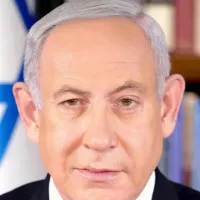
2 months ago Netanyahu Seeks Presidential Pardon Amid Corruption Trial: A Political Maneuver?
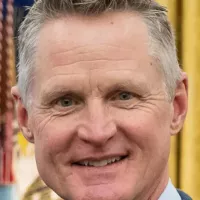
10 months ago Steve Kerr Addresses Jonathan Kuminga's Fit Within the Warriors After OT Loss.
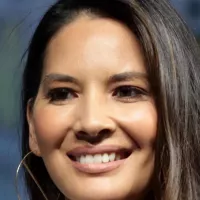
2 months ago Olivia Munn Suffered Food Poisoning After Eating Sushi in Bathtub, Vomited at Airport
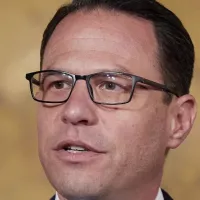
7 months ago Josh Shapiro Addresses Stadium Funding, Reaffirming No State Money for New Arenas.
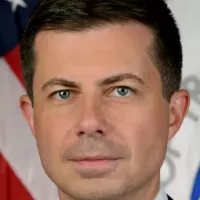
6 months ago Buttigieg Warns Democrats: No Return to Status Quo Post-Trump Presidency in 2028.

2 months ago Jimmy Butler shines as Warriors defeat Pelicans; Hield's performance in focus.
Popular

Thomas Douglas Homan is an American law enforcement officer who...

XXXTentacion born Jahseh Dwayne Ricardo Onfroy was a controversial yet...

William Franklin Graham III commonly known as Franklin Graham is...

Jupiter is the fifth and largest planet from the Sun...

Instagram is a photo and video-sharing social networking service owned...

Martin Luther King Jr was a pivotal leader in the...
